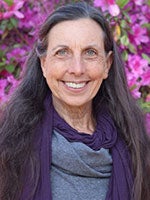L J Palmer-Moloney
PhD, Coastal Resources Management (wetlands ecology & hydrology), East Carolina University
PhD, Curriculum & Instruction (Geographic Education), University of Denver
MA, Geography, Louisiana State University
BA, Anthropology, University of New Orleans
Research
Areas of Interest: Evolving Natural and Human Environments in the context of the Blue Economy, Curbing Corruption in the Water Sector, Water-Food-Energy Nexus, Water and National Security, Geographic Education
Dr. Palmer-Moloney’s research integrates her study of Climatic and Anthropogenic Stressors with diverse environments—from the coastal edge of eastern NC to inland drainage basins of Central Asia. She has developed experience across the scientific, academic, nonprofit, policy, and environmental communities, is recruited often to give meaning and context to highly technical material and serves as a go-between for engineers and scientists, policy analysts, and decision-makers.
As hydrogeographer and lead consultant with Visual Teaching Technologies, she is involved in local/regional coastal resources management and the water-food-energy-climate nexus endeavors. Dr. Palmer-Moloney is an active participant in the Carteret County Marine Science Education Partnership.
Dr. Palmer-Moloney is part of the CurbingCorruption team, and her writing/contributions focus on the water sector. Her research and interest in anti-corruption related to data (point of collection decisions, collection methods, dissemination) explore watershed management, the ocean economy, water for energy or food or habitat or development; and more broadly climate change and extreme weather roles.
Dr. Palmer-Moloney is President of the Crystal Coast Beekeepers Association and an avid backyard beekeeper. Her work with honeybees is more than “keeping” bees. It gives her insight into human-environment interaction and the opportunity to have an up close and personal look at bees–their honey/honey comb, and pollination– as social-ecosystems services.
Dr. Palmer-Moloney’s work reflects her conviction that now, more than ever, it is critical to reach across sectors and to embrace the interconnectedness of healthy living, learning, and environmental issues.
